Moving through a Fog of White4/7/2015 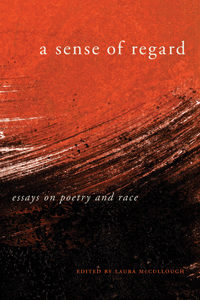 Tess Taylor, herself a descendent of Thomas Jefferson, examines, in a bright and thoughtful essay, poetry that addresses racialization from a white perspective. Snippet: How might writers who have been discouraged or even disinvited from thinking about their racial experiences as racial begin to read and write those experiences? Which instincts towards silence or omission would such a writer have to overcome? What is at stake in naming spaces where race, racialization, and racism occur in white lives? If whiteness is partially maintained by strategies of not-saying, not-knowing, self-normalizing, what does it mean to craft art in which whiteness can be destabilized? In short, how does a subject take responsibility for moving from whiteness to witness? Three contemporary poets—Jake Adam York, Rachel Richardson, and Martha Collins—have been remarkably successful at giving aesthetic form to these questions as they struggle to name and claim some of the paradoxes of inheriting white experience. How does each work against the “fog” that Morrison describes? How does each deploy, reveal, and break racial codes? How does each position the expression of racial knowledge, especially racial knowledge white writers have often failed to acknowledge or reveal? It’s worth noting that merely examining and naming the white body as white is historically itself a charged act. Melville’s Ishmael—the ultimate anonymous narrator—has historically been presumed white simply because he occupies the space of voyeur-reporter describing (other) racially marked bodies. In contrast, Collins, York and Richardson self-examine and self-mark. They call attention to their own bodies, stories, and speech, attempting to read the uneasy codes that converge upon them. In doing so, each tries to make the occluding cloud somewhat less blinding—and to show a way through it.
0 Comments
Class, Clothes, & the Jersey Shore4/1/2015 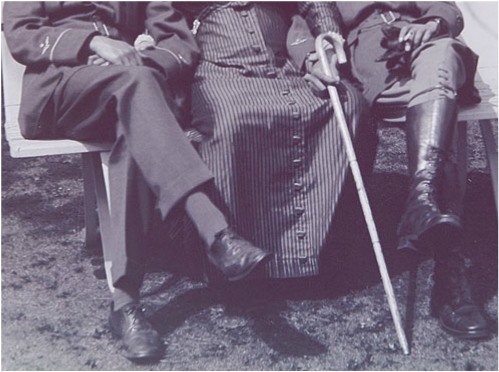 Vox Populi: a public sphere for politics and poetry has posted my essay about a pair of old army pants, "Things That have Lived and Then Died". It's part of a larger project about thrift stores, clothing, class, intimacy, boundaries between people, and the Jersey Shore called My Life in Other People's Clothes. Here's a snippet: That’s when I noticed the army pants. Thick green military wool. Clearly from one of the World Wars. I think American, but am not sure. It is something another person might research, compare linings, style and construction, stitching, but it isn’t the history or collectability that drew me to the pants. The wool was scratchy and rough against my palm. “Where did you get these,” I asked Molly. “Dunno.” She nodded for me to pick them up. In my hands, they unrolled to the ground, the cuff near my ankle. The man who’d worn these couldn’t have been much taller than me. “You can have them,” she said. It hadn’t occurred to me, but now I held them against my pelvis, the high waist against my belly, the button fly. “These are great,” I said. “Thank you.” “They look like they should fit.” I mumbled agreement. Something about the pants moved me. It wouldn’t be until later at home when I slipped my legs inside them that I felt my body slipping inside someone else’s, as if their bones and flesh were still present, and I was pulling them on over my own. When I buttoned the fly, and felt my hip bones settle in their sockets, a widening out happened, against what I normally feel, which is that I always want to make my hips appear as slender as I can. Instead, they seemed full and wide and supportive, and I felt as if my legs under me didn’t end in pretty feet or delicate ankles (which I don’t have, but always wish for), but somehow felt solid and competent and able to march far distances. This is not what I mean, really. Not that I imagined being a soldier, not that I imagined being strong and masculine. Instead, I felt as if time slid sideways, that the boundaries between people and times were somehow porous, and that this rough textile, this made thing that clothed I don’t know how many people before me, was a kind of portal. Many bodies, many times. I don’t care about the historical accuracy of place and time so much as a caring about a kind of emotional and empathetic residue. I am not the first to wear these pants, but I am likely to the last who will. And I do wear them every winter. And they are very warm indeed. And check out the rest of Vox Populi magazine, curated by Michael Simms of Autumn House Press. 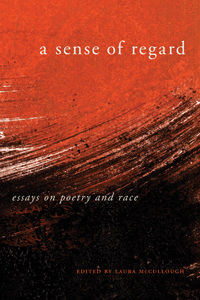 Jaswinder Bolina takes on the normative White Male figure and explored the margins around it in this deeply considered essay, “Writing like a White Guy”. Excerpt: The one thing I least believe about race in America is that we can disregard it. I'm nowhere close to alone in this, but the person I encounter far more often than the racist--closeted or proud--is the one who believes race isn't an active factor in her thinking, isn't an influence on his interaction with the racial Other. Such blindness to race seems unlikely, but I suspect few of us entirely understand why it's so improbable. I'm not certain either, but I've been given some idea. At a panel discussion in 2004, a professor of political philosophy, Caribbean-born with a doctorate from the University of Toronto, explains that he never understood why the question in America is so often a question of race. A scholar of Marxist thinking, he says in nearly every other industrialized nation on Earth, the first question is a question of class, and accordingly class is the first conflict. He says it wasn't until he moved to the United States in the early '70s--about the same time my father arrived--that he intellectually and viscerally understood that America is a place where class historically coincides with race. This, he says, is the heaviest legacy of slavery and segregation. To read the rest of Jaswinder's essay and all the others, the book can be gotten here: The White Life3/23/2015 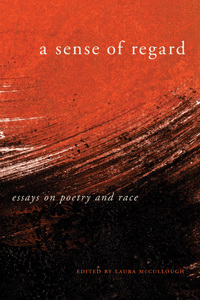 In “Writing White”, Martha Collins, known for her own poems exploring whiteness and race, seeks to respond to Major Jackson’s writing on white poets writing about race as well as Claudia Rankine's examination of white poets taking on the topic of race in their work. Excerpt (corrected): I have realized in the years since I published Blue Front, my life itself has been extremely white. While I was writing that book, I was thinking mostly about my father, who became the imagined or questioned figure through whom I tried to observe the lynching. But at some point I began to consider what all of this had to do with me, a white woman living nearly 100 years later. Then the term “white papers” came into my consciousness and provided a title for what ultimately became a book of numbered but untitled poems that deal with race, particularly the issue of what it means to be white in a multi-racial society still haunted by its deeply racist past. A number of the poems focus on my very white Midwestern childhood; others involve historical explorations of the racial history of several places (all Northern) where I have lived; still others examine the uses we make of the words we so inaccurately call ourselves, particularly “white.” Ten years ago I would have said that I had very little “racial” history. In writing this recent book, I learned a great deal about the history of race, including the history of whiteness, and a great deal about myself. My own experience has become racialized, in a conscious way, and whether that awareness is apparent in my poems or not, it has changed the way I live my life and see the world. To read the full essay and all the rest, purchase it here. 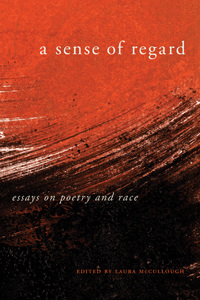 Major Jackson’s essay on race in poetry, “A Mystifying Silence: Big and Black” cracked open the silence on the topic of race in poetry. First appearing in the American Poetry Review, it is reprinted in the anthology in a section called "Imperialism & Experiments: Comedy, Confession, Collage, Conscience". Some of the essays in the section respond directly to Major Jackson's essay; others build upon it; some try to answer his call. In the coming days, there will be blog posts on the other essays--by Martha Collins, Jaswinder Bolina, Tess Taylor, Ailish Hopper, Tony Hoagland, and Patrick Lawrence--in this section. Here is a tiny taste of Major Jackson's humane and intelligent essay: Writing about race has to be so much more than writing about race, and moreover, race in poetry is not a mere discussion between black and white peoples of the United States, or a visit to the Martin Luther King, Jr. National Historic Site, or some poeticized contraption set up to ensnare an overly sensitive group of readers who passionately believe in equity, justice, racial harmony, and change. It bears repeating again: for us to actualize as a country whose ideals and documents profess the value of a diverse ethnic and racial populace, we must begin to pen a body of poems that go beyond our fears and surface projections of each other to a fuller account of the challenges and reaches of an ever-evolving democracy. To read the full essay and all of the others, please get the anthology!
People: we get the government we deserve3/12/2015 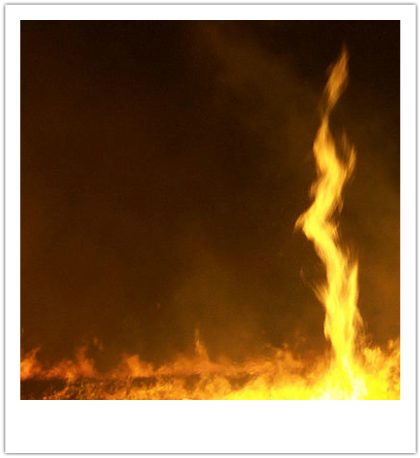 What's happening to us? Why is there a feeling of crisis in the culture? Two crucial reads, maybe the most important things I have read in a while (next Picketty's tome on capitalism): one, in this issue of THE NEW YORKER, is on the hunger games capitalism crushing all of us and how income disparity is a choice. It explains a lot of current thinking on the topic, but points a finger at why the rich are getting richer, the poor poorer, and the middle class is being erased, and it comes down to a kind of wholesale moral theft by our leadership: http://www.newyorker.com/magazine/2015/03/16/richer-and-poorer The second read connects to the first in that it exposes one racist, classist way we raise public revenues: creating and maintaining a permanent underclass, that is not exclusively but is deeply racist and is another kind of wholesale theft. The just released report on Ferguson is explained in this issue of THE ATLANTIC. It exonerates the officer but lays the blame where it belongs, exposing one dangerous facet of our growing police state. And it's us. http://www.theatlantic.com/politics/archive/2015/03/The-Gangsters-Of-Ferguson/386893/ In between these two articles, we can't ignore that we have militarized our police not to keep the public welfare, but to raid the poorest and/or most marginalized among us, and we've put into place the systems above that have and are chipping away at social systems that support all of us. Above and below, we have given away community. WE gave it away, and now the middle class is caught as if in a vise, and are we screaming? Trying to change things? No, we point fingers--color, religion, class, race, profession, you name it--and it's somebody else's fault that the standard of living is decreasing for most of us, while the uber rich, the trans-national rich increasingly hoard more and more. And we all sit back and complain while secretly aspiring to a wealth we will never see. All of us pointing fingers this way or that. It's our government, people. It's manifests what WE value. And that means US. If you are not outraged, you are either not awake or you are deluded--precisely what our current K-12 system tries to ensure. 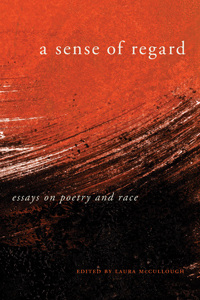 Travis Hedge Coke winds down into the spitfires of language and naming and claiming and oppression and self-indictment, individual and cultural, in his essay, "Identity Indictment". Excerpt: Indianicity ain’t a word. Nativeness is almost semantically null. Authenticity is a come on, a tease. I like self-identifying as NDN because it sounds like a word, but it isn’t a proper word, and it isn’t the one it sounds like, either. You will be found out by your cousins, your sisters, mothers, your sons and neighbors. Maybe you will find yourself therein, as well. That’s you, as in all of you, not only the Native poets, for no matter how neurotically we divvy up the world and desperately claim separations, there’s more mixing than there is divides. The ground and the air are intermixed things, and on this Earth, one always pulls you closer to it, and the other is constantly surrounding you, forever touching your skin, your mouth, and your blood. To read the entire essay and all of the others, order the anthology here: Physics of Race: A. Van Jordan3/3/2015 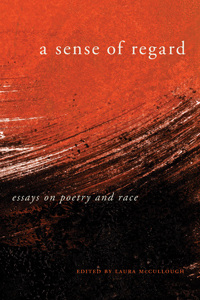 Paula Hayes takes on the racial underlayment in Van Jordan’s poetry in her essay, “Letting Science Tell the Story”. Contemporary African American poet, A. Van Jordan, in his third collection of poems, Quantum Lyrics (2007), pursues matters of race by turning to the cultural history of science. As readers, we are swept into a labyrinth of science, physics, and mathematics, and in the very next breath we are met with science fiction, film and music. Unlikely and surprising characters, like Albert Einstein, Erwin Schrodinger, and Richard Feynman, walk beside DC Comics superheroes, Flash, the Atom, and the Green Lantern, as historical truth, subjective truth, and popular culture traverse the boundaries of time and space. Holding together such a diverse range of ideas is Van Jordan’s use of the montage. Van Jordan positions his “Quantum Lyrics Montage,” a subset within the larger work of Quantum Lyrics, into a rich history of African American modernism; we may think, here, of Langston Hughes’s The Montage of a Dream Deferred, Derek Walcott’s Omeros, and the writings of Melvin Tolson and Amiri Baraka. In part because of the expansiveness of the form, the montage becomes a poetic tool for deconstructing American narratives on race and identity, whether self-identity or communal identity. Natasha Tretheway and inbetween-ness2/24/2015 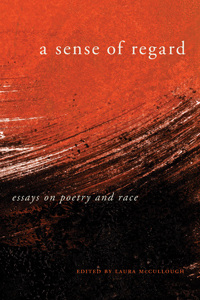 Natasha Trethewey’s poetry of family and historic violence and personal racial hybridity is the subject of Timothy Leyrson’s “Writing Between Worlds”. Trethewey’s views of her bi-racial identity, and race relations overall, are beneficial for a number of reasons. By embracing these concepts she is able to create deeper meaning in her own expression, for her readers who are bi-racial she develops a common bond, and readers of a singular racial background are forced to examine the world beyond their own perception. But perhaps the highest level of understanding is that her views may be acting as a method of transformation. The idea of being united in one’s own mind, as well as to others, it is explained by Trethewey herself in a lecture she delivered in Emory University’s Distinguished Faculty Lecture series on February 3, 2010. Trethewey stated: I believe, after all, that poetry is the best repository for our most humane, ethical, and just expressions of feeling. This is because poetry ennobles the human soul, that it opens—not closes—our hearts. Poetry matters... For the full essay and all of the others, get the anthology here. Archives
October 2023
Categories
All
|
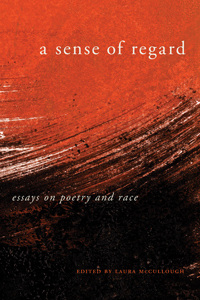
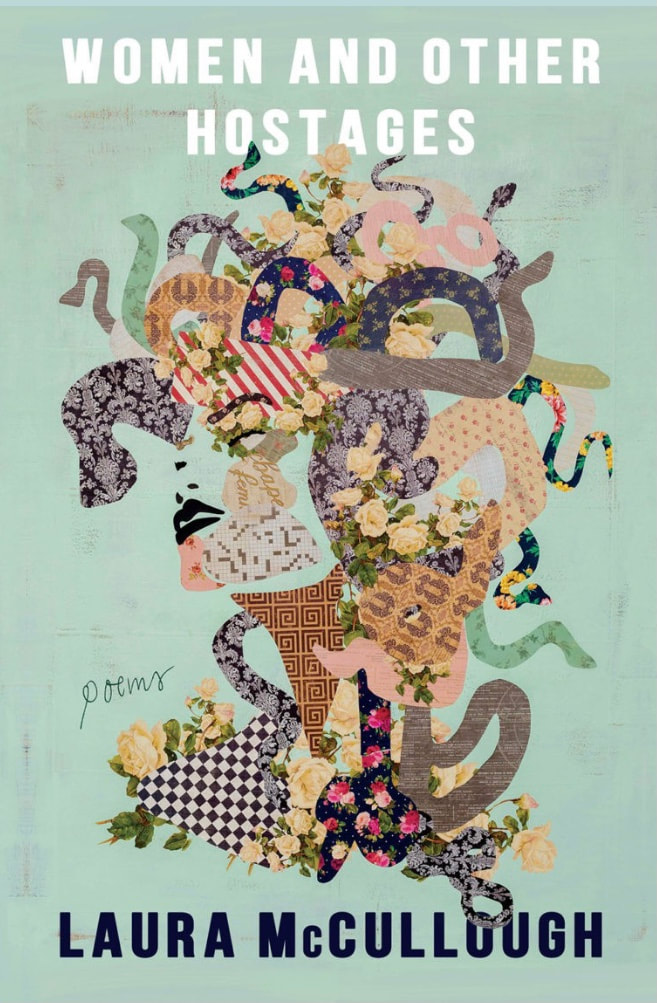
 RSS Feed
RSS Feed
